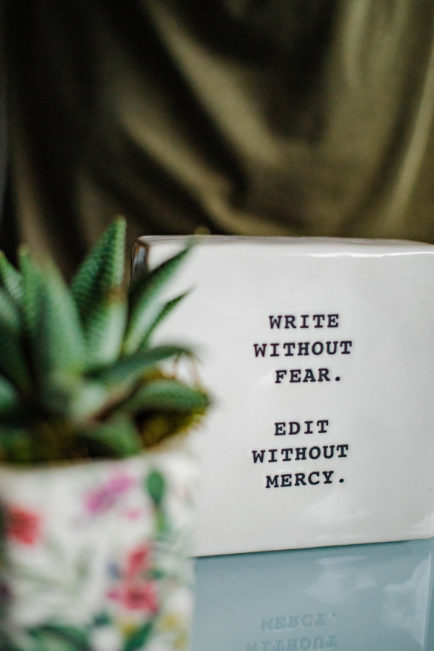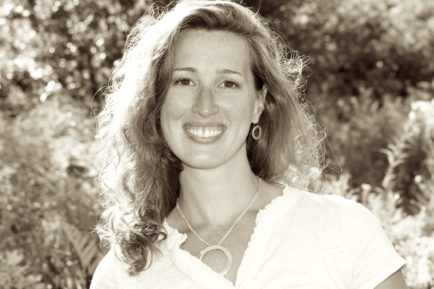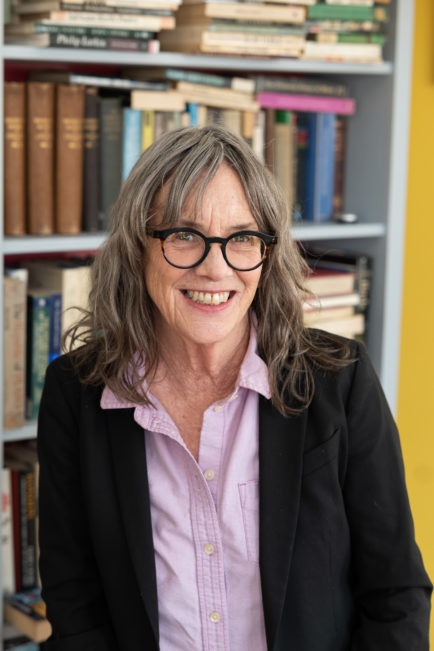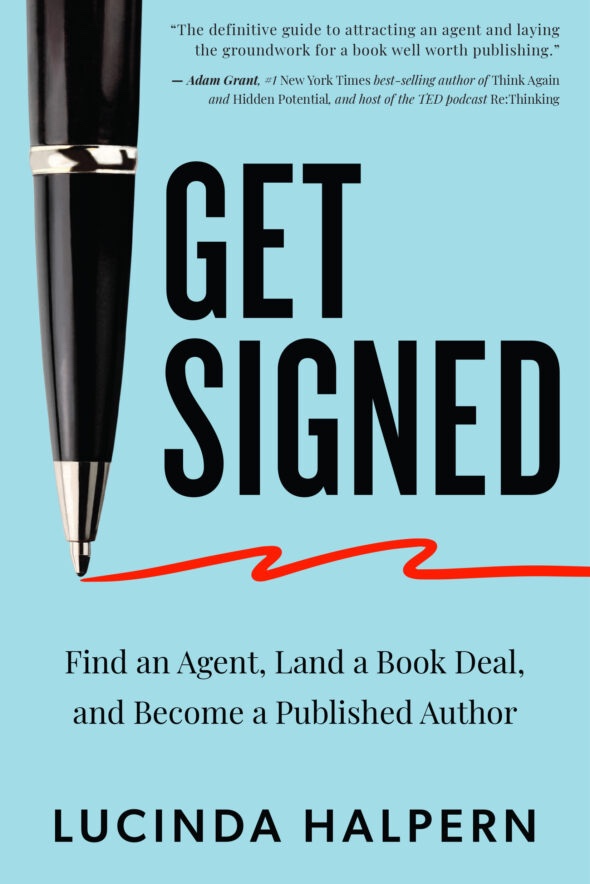Search
The Business of Ghostwriting
 Many of you are curious about ghostwriting: whether you’re a professional writer wondering about doing it yourself, or whether you’re a busy entrepreneur, considering engaging an outside expert so you can finally get your book done.
Many of you are curious about ghostwriting: whether you’re a professional writer wondering about doing it yourself, or whether you’re a busy entrepreneur, considering engaging an outside expert so you can finally get your book done.
Did you know Michelle Obama’s book Becoming was written with a ghostwriter, according to this article? It’s not just First Ladies who use collaborators—it’s also famous musicians, scientists, CEOs, and a variety of other thought leaders. At least half of the writers we represent at Lucinda Literary use ghosts, and far from being a dirty little secret, it’s seen as an asset to publishers.
So, how do you know if you need a ghostwriter, or how do you know if you could be one?
I reached out to two of the ghostwriters in our stable, Amanda Ibey and Linda Sparrowe, to ask them everything I thought you would like to know.
What is a ghostwriter, and what exactly do they do?
Amanda: [A ghostwriter can be contracted for anything from] helping to develop ideas and positions, analyzing and understanding different audiences’ pain points and challenges, communicating solutions, using personal stories and anecdotes to bring material to life, and researching and using primary and secondary source material to support positions. As a ghostwriter, I help my collaborators shine. It’s my job to get their ideas and stories onto the page in a way that their audience will understand, absorb, and be moved by.
Who are your typical clients? Why do they need a ghostwriter?
Amanda: I often work with authors passionate about helping their readers to change their lives for the positive. Authors often have developing coaching programs or courses, they provide one-on-one or small group coaching, they are public speakers, or thought leaders in their spaces. I also tend to work with authors who have worked to transform their own lives (personally and/or professionally), so the messages that we share in their books have a personal angle too. My collaborators are experts in their chosen areas and have grand ideas, but they need help turning their visions into book form. While I often jump genres, my collaborators often work in the spaces of self-help/personal development, business and leadership, health and wellness, spirituality, memoir, how-to, and big idea.
Linda: My clients have ranged from a TV talk-show personality in New York, to a neuroscientist/integrative MD in San Francisco, to an acupuncturist in Beverly Hills, to psychotherapists, yoga celebrities, self-help experts, memoirists, and even an 80-year-old shaman.
Let’s get into this a little more in-depth. How can you write someone else’s book for them? What is your process?
Amanda: Whether generating the big idea or completing a finished manuscript, I typically start by developing a detailed outline which the author approves, then I write chapter by chapter until I reach the end.
[The timing of] when authors weigh in with their notes can vary. Sometimes authors give me their notes one chapter at a time; other times notes come in batches, so I’ll send a third or fourth of the manuscript at a time to authors and we’ll work through revisions before moving on to writing the next chunk. The revision process depends on the author’s preference, schedule, and also our production timeline. Once we have a full draft, we do 1-2 more read-throughs for final editing and revisions before shipping the manuscript to the author’s editor (if it’s going to a traditional publisher) or moving it to the independent or self-publishing channel.
Every manuscript—or writing project—needs source material and content collection, and that process differs from author to author. I seek the path of least resistance and that’s the most enjoyable, easiest, and efficient process for the authors. For example:
- Sometimes material comes from extensive interviews between me and the author.
- Sometimes it comes from content the author has already created, whether that’s in the form of blogs, interviews, speeches they’ve delivered, coaching or courses they’ve developed, or writing they’ve done for our project.
- Sometimes, I use transcripts from interviews the author has conducted with outside experts and/or clients.
Most projects feature some combination of the above.
What is the range of fees you see for writing a proposal? For a full book? Are there any exceptions?
Linda: There are plenty of exceptions around pricing! So much depends on your experience and track record as a ghostwriter; the author’s budget; what you’re willing to accept. Book proposals can range between $8,000 and $20,000 (including a sample chapter). A full book can range from 30¢ per word to $1.50+ per word. My book proposal rates are between $15,000 and $20,000 and I don’t generally ghostwrite a book for under $1/word. Ghostwriters can also offer to write for less and share in the author’s royalties. I personally don’t like to do that unless it’s clear that the book is going to be a strong seller.
For someone starting in the field, what’s the best way to begin or promote your services when there are so many others out there?
Linda: I think one way to begin is to focus on what you know and what you’re known for. You might have a lot of experience in the business world as an editor, a writer, or even a teacher. Reach out to those in that field who know your work or whom you’ve connected with in the past and let them know you’re available to write op-ed pieces (for example) or white papers, or a series of blog posts—smaller things to get into the groove and prove yourself. If you’ve successfully published with a conventional publisher—under your own name—reach out to your editor there and let them know you’re available to work with their authors, either for ghostwriting book proposals or manuscripts. I still do plenty of book proposals for agents and acquisitions editors, which often lead to being asked to ghostwrite or develop the manuscript as well. With publishers and agents, you may not always get a full-on ghostwriting gig, but you could be asked to do major rewrites, developmental editing or coaching.
What do you find most challenging about collaborations?
Amanda: Every collaboration is truly unique and what can be challenging for one author and/or project is different for another. Universally, if the author doesn’t have enough material to generate a manuscript, that’s tough. There are workarounds, but the process can take longer. Sometimes, schedules can be tough to navigate, mostly because authors are busy. Many work with me because they don’t have the time (or the skill set) to write a manuscript, yet it’s still important for them to be involved. Author involvement varies, but I think the most fruitful and successful collaborations and books come from authors willing and able to spend time talking with me and reviewing content.
How did you know that ghostwriting was right for you?
Linda: Weirdly, I didn’t know I could do it until… I did it. However, I’m highly intuitive and am good at channeling other people’s voices. I’m a consummate brainstormer and have a good track record as a strong, successful writer. This combination of skills seems to really work for ghostwriting, developmental editing and coaching.
What do you find most rewarding about ghostwriting?
Amanda: First, it’s the people—meeting and getting the opportunity to work with and write for inspiring, smart, and passionate people who want to make a difference in the world.
Do they also grow their platforms and businesses, speaking engagements and coaching opportunities? Absolutely, so being able to help my partners to grow and evolve and improve their professional lives is so rewarding for me. I usually go onto work on multiple projects and get referrals from my partners, so I know the work we do together is meaningful and impactful, which inspires me to keep growing and evolving too.
Second, it’s helping people complete a huge goal and undertaking. Writing a book, even working through a ghostwriter like myself, is no small feat. It’s a massive commitment of time and energy. To work with a ghostwriter, you make yourself vulnerable to me first, putting your ideas and emotions and stories and messages out for me to listen to and then retell or finesse. At the risk of being overly earnest, I’m always humbled and honored by the openness and trust that my collaborators place in me and getting to have that experience with someone is very special and rewarding.
Finally, it’s rewarding for me to see the final manuscript and then to hold a book in my hands. It’s something tangible that we (me and the author) created together, and it represents this journey that we took from the beginning. Most books take months to complete and to have something to show for that moment in time is special. I’ve had collaborators tell me that after the birth of their children, doing their book was the best experience of their lives. When I hear comments like that, when I see the finished manuscript, and I hold the book that we did together in my hands, I just know this is the right line of work for me.
How did you come to work with Lucinda Literary?
Linda: Lucinda and I got together because her agency offered to represent one of my authors who had a great book proposal. We had such a great connection that we’ve continued to work together. For many ghostwriters, working with agents is a boon because we don’t have to market ourselves, or deal with contracts, and so on. Also, a good agent has a great relationship not only with the ghostwriter but also with the author-client. It feels like a team effort.
Amanda: I met Lucinda through an author collaboration, and we clicked immediately. She and the rest of the Lucinda Literary team are smart and savvy, they care about the writers they represent, and they are a partner looking out for your best interests while investing in your career and development.
Is there anything else aspiring ghosts might find surprising or helpful to know?
Linda: I think the best advice I can offer those interested in ghostwriting or any form of editorial collaboration is this: Remember that the book is not yours. You are there to bring out the very best your author has—their wisdom, their knowledge, and their unique voice. You’re here to support them, shore them up when they get discouraged, gently steer them back to their mission when they begin to stray, laugh with them, listen to them and write from within their understanding. Give only constructive feedback, always beginning with the positive. When we give too much feedback all at once—when we focus on what does not work, we can shut down an author’s imagination, their confidence, and their enthusiasm. Of course, it’s also absolutely fine to brainstorm and suggest ways to make the book better, and at the end of the day—even if you are absolutely correct—they get to decide.
Amanda Ibey
 Amanda Ibey is a collaborative writer, editor, coach, and thought partner to bestselling and aspiring authors, successful executives, passionate entrepreneurs, and other top influencers hungry to change people’s lives with their words. She is a writing partner for passionate professionals who want to create influential nonfiction books, articles, blogs, white papers, and other compelling content.
Amanda Ibey is a collaborative writer, editor, coach, and thought partner to bestselling and aspiring authors, successful executives, passionate entrepreneurs, and other top influencers hungry to change people’s lives with their words. She is a writing partner for passionate professionals who want to create influential nonfiction books, articles, blogs, white papers, and other compelling content.
Visit Amanda’s website here.

Linda Sparrowe
For experts wanting to pen their own offerings, Linda gets involved in every aspect of the creative process—as a coach, a developmental editor, or a ghostwriting wordsmith. Sometimes that means fine-tuning a book idea or crafting a book proposal, playing with voice or giving feedback chapter-by-chapter. Often it means helping writers get quiet, offering them practices with an inward focus so they can listen to what wants to be revealed, discover their unique gift as a writer and find the clarity and confidence they need to write their book.







